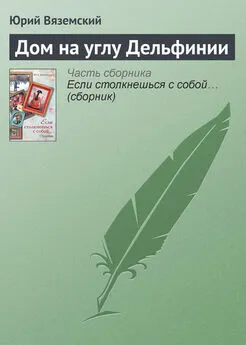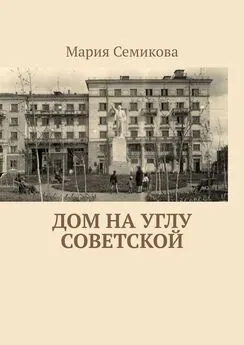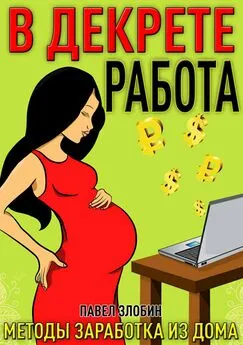Метод Франка - Дом на Пуховом углу
- Название:Дом на Пуховом углу
- Автор:
- Жанр:
- Издательство:неизвестно
- Год:0101
- ISBN:нет данных
- Рейтинг:
- Избранное:Добавить в избранное
-
Отзывы:
-
Ваша оценка:
Метод Франка - Дом на Пуховом углу краткое содержание
Дом на Пуховом углу - читать онлайн бесплатно полную версию (весь текст целиком)
Интервал:
Закладка:
"I should hate him to go on being Sad (мне бы очень не хотелось, чтобы он продолжал быть = долго был Печальным )," said Piglet doubtfully (сказал Пятачок с сомнением).
melancholy ['melqnkqlI], being ['bJIN], doubtfully ['dautfulI]
"Because he'll be a Humble Tigger. Because he'll be a Sad Tigger, a Melancholy Tigger, a Small and Sorry Tigger, an Oh-Rabbit-I- am -glad-to-see-you Tigger. That's why."
"Will he be glad to see me and Piglet, too?"
"Of course."
"That's good," said Pooh.
"I should hate him to go on being Sad," said Piglet doubtfully.
"Tiggers never go on being Sad (Тигеры никогда не бывают долго Печальными; to go on — продолжать )," explained Rabbit (объяснил Кролик). "They get over it with Astonishing Rapidity (они оправляются с Поразительной Быстротой; to astonish — изумлять , поражать , удивлять ). I asked Owl, just to make sure (я спрашивал у Филина, только чтобы удостовериться), and he said that that's what they always get over it with (и он сказал, что это /Поразительная Быстрота/ — именно с ней они всегда оправляются). But if we can make Tigger feel Small and Sad just for five minutes (но если мы сможем заставить Тигера почувствовать себя Маленьким и Печальным хотя бы на пять минут), we shall have done a good deed (мы сделаем доброе дело)."
"Would Christopher Robin think so (/а/ Кристофер Робин посчитал бы так)?" asked Piglet (спросил Пятачок).
"Yes," said Rabbit (да, — сказал Кролик). "He'd say 'You've done a good deed, Piglet (он бы сказал: ты совершил хороший поступок, Пятачок). I would have done it myself (я сделал бы его сам), only I happened to be doing something else (только случилось так, что я делал что-то другое). Thank you, Piglet (спасибо, Пятачок).' And Pooh, of course (и Пух, конечно)."
astonish [qs'tOnIS], rapidity [rq'pIdItI], deed [dJd]
"Tiggers never go on being Sad," explained Rabbit. "They get over it with Astonishing Rapidity. I asked Owl, just to make sure, and he said that that's what they always get over it with. But if we can make Tigger feel Small and Sad just for five minutes, we shall have done a good deed."
"Would Christopher Robin think so?" asked Piglet.
"Yes," said Rabbit. "He'd say 'You've done a good deed, Piglet. I would have done it myself, only I happened to be doing something else. Thank you, Piglet.' And Pooh, of course."
Piglet felt very glad about this (Пятачок почувствовал себя очень счастливым от этого = очень обрадовался этому ), and he saw at once (и он сразу понял) that what they were going to do to Tigger was a good thing to do (что то, что они собираются сделать с Тигером, — доброе дело /чтобы делать/), and as Pooh and Rabbit were doing it with him (а так как Пух и Кролик делают это = при этом с ним ), it was a thing (то это дело) which even a Very Small Animal could wake up in the morning and be comfortable about doing (в отношении которого может быть спокойно даже Очень Маленькое Животное, когда оно просыпается утром). So the only question was (поэтому единственный вопрос был = заключался в том), where should they lose Tigger (где им потерять Тигера)?
"We'll take him to the North Pole (мы заведем его на Северный Полюс)," said Rabbit (сказал Кролик[55]), "because it was a very long explore finding it (потому что это был долгий исследовательский поход, чтобы отыскать его) so it will be a very long explore for Tigger un-finding it again (поэтому это будет очень долгий исследовательский поход для Тигера, чтобы заискать[56] его снова)."
even [Jvn], should [Sud], question ['kwesCqn]
Piglet felt very glad about this, and he saw at once that what they were going to do to Tigger was a good thing to do, and as Pooh and Rabbit were doing it with him, it was a thing which even a Very Small Animal could wake up in the morning and be comfortable about doing. So the only question was, where should they lose Tigger?
"We'll take him to the North Pole," said Rabbit, "because it was a very long explore finding it, so it will be a very long explore for Tigger un-finding it again."
It was now Pooh's turn to feel very glad (теперь пришла очередь Пуху очень обрадоваться), because it was he who had first found the North Pole (потому что именно он первым нашел Северный Полюс), and when they got there (и когда они доберутся туда), Tigger would see a notice which said (Тигер увидит надпись, которая гласит), "Discovered by Pooh, Pooh found it (открыт Пухом, Пух нашел его)," and then Tigger would know (и тогда Тигер узнает), which perhaps he didn't now (чего он, вероятно, не знает сейчас), the sort of Bear Pooh was (какой Пух Медведь). That sort of Bear (такой /вот/ медведь[57]).
who [hH], discover [dIs'kAvq], perhaps [pq'hxps]
It was now Pooh's turn to feel very glad, because it was he who had first found the North Pole, and when they got there, Tigger would see a notice which said, "Discovered by Pooh, Pooh found it," and then Tigger would know, which perhaps he didn't now, the sort of Bear Pooh was. That sort of Bear.
So it was arranged (итак, договорились) that they should start next morning (что они выступят следующим утром), and that Rabbit (и что Кролик), who lived near Kanga and Roo and Tigger (который жил возле Кенги и Ру и Тигера), should now go home and ask Tigger (должен сейчас пойти /к ним/ домой и спросить Тигера) what he was doing tomorrow (что он делает завтра), because if he wasn't doing anything (потому что, если он ничего не делает = ничем не занят ), what about coming for an explore and getting Pooh and Piglet to come too (как насчет того, чтобы пойти в исследовательский поход и взять с собой также Пуха и Пятачка)? And if Tigger said "Yes (и если Тигер скажет «да»)" that would be all right (это будет здорово), and if he said "No (а если он скажет «нет»)".
"He won't," said Rabbit (он не скажет, — сказал Кролик). "Leave it to me (предоставьте это мне)." And he went off busily (и он убежал с деловым видом).
arrange [q'reInG], tomorrow [tq'mOrqu], busily ['bIzIlI]
So it was arranged that they should start next morning, and that Rabbit, who lived near Kanga and Roo and Tigger, should now go home and ask Tigger what he was doing tomorrow, because if he wasn't doing anything, what about coming for an explore and getting Pooh and Piglet to come too? And if Tigger said "Yes" that would be all right, and if he said "No".
"He won't," said Rabbit. "Leave it to me." And he went off busily.
The next day was quite a different day (следующий день был совершенно иным /днем/). Instead of being hot and sunny (вместо того, чтобы быть жарким и солнечным), it was cold and misty (он был холодным и туманным; mist — /легкий/ туман; дымка; мгла; пасмурность ). Pooh didn't mind for himself (Пух не тревожился о себе), but when he thought of all the honey the bees wouldn't be making (но когда он думал обо всем том меде, который не сделают пчелы), a cold and misty day always made him feel sorry for them (холодный и туманный день всегда вызывал у него чувство жалости к ним = пчелам ). He said so to Piglet (он сказал так = об этом Пятачку) when Piglet came to fetch him (когда Пятачок зашел за ним), and Piglet said (и Пятачок сказал) that he wasn't thinking of that so much (что он не думает так много об этом), but of how cold and miserable it would be being lost all day and night on the top of the Forest (но /думает/ о том, как холодно и плачевно быть потерянным весь день и всю ночь в верхней части Леса). But when he and Pooh had got to Rabbit's house (но когда он и Пух добрались до дома Кролика), Rabbit said it was just the day for them (Кролик сказал, что это день как раз для них), because Tigger always bounced on ahead of everybody (потому что Тигер всегда выпрыгивает впереди всех), and as soon as he got out of sight (и, как только он скроется из виду), they would hurry away in the other direction (они убегут: «поспешат прочь» в другом направлении), and he would never see them again (и он никогда /не/ увидит их снова = больше ).
instead [In'sted], honey ['hAnI], miserable ['mIzqrqbl]
The next day was quite a different day. Instead of being hot and sunny, it was cold and misty. Pooh didn't mind for himself, but when he thought of all the honey the bees wouldn't be making, a cold and misty day always made him feel sorry for them. He said so to Piglet when Piglet came to fetch him, and Piglet said that he wasn't thinking of that so much, but of how cold and miserable it would be being lost all day and night on the top of the Forest. But when he and Pooh had got to Rabbit's house, Rabbit said it was just the day for them, because Tigger always bounced on ahead of everybody, and as soon as he got out of sight, they would hurry away in the other direction, and he would never see them again.
"Not never?" said Piglet (никогда-никогда? — спросил Пятачок).
"Well, not until we find him again, Piglet (ну, не раньше, чем мы найдем его снова, Пятачок). To-morrow, or whenever it is (завтра, или когда бы это ни случилось). Come on (идем). He's waiting for us (он ждет нас)."
When they got to Kanga's house (когда они добрались до дома Кенги), they found (они обнаружили) that Roo was waiting too (что Ру ждет тоже), being a great friend of Tigger's (будучи большим другом Тигера), which made it Awkward (что вызвало у них Неловкость = что Затрудняло дело; awkward — неудобный ; затруднительный , неловкий ); but Rabbit whispered (но Кролик шепнул) "Leave this to me (предоставьте это мне)" behind his paw to Pooh (Пуху, прикрыв лапкой рот), and went up to Kanga (и подошел к Кенге).
Читать дальшеИнтервал:
Закладка:


![Коллектив авторов - Сад любви. Из английской романтической поэзии [litres (Метод обучающего чтения Ильи Франка)]](/books/1082624/kollektiv-avtorov-sad-lyubvi-iz-anglijskoj-romanti.webp)


